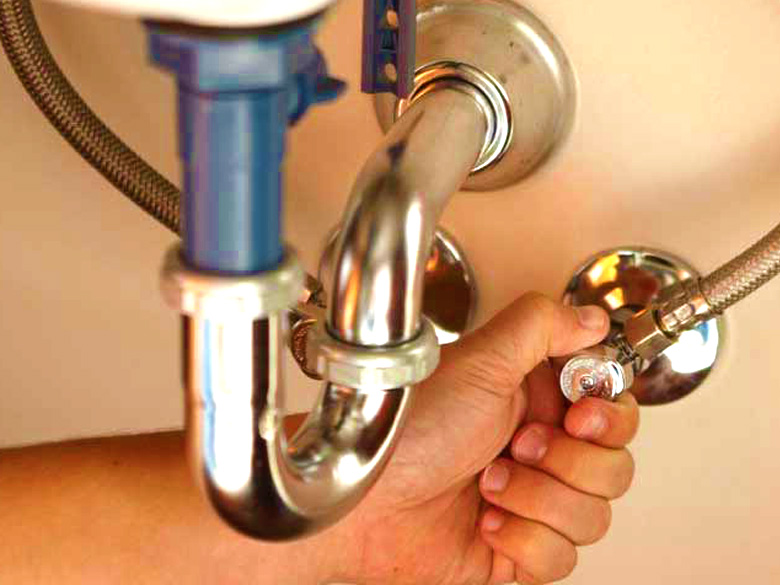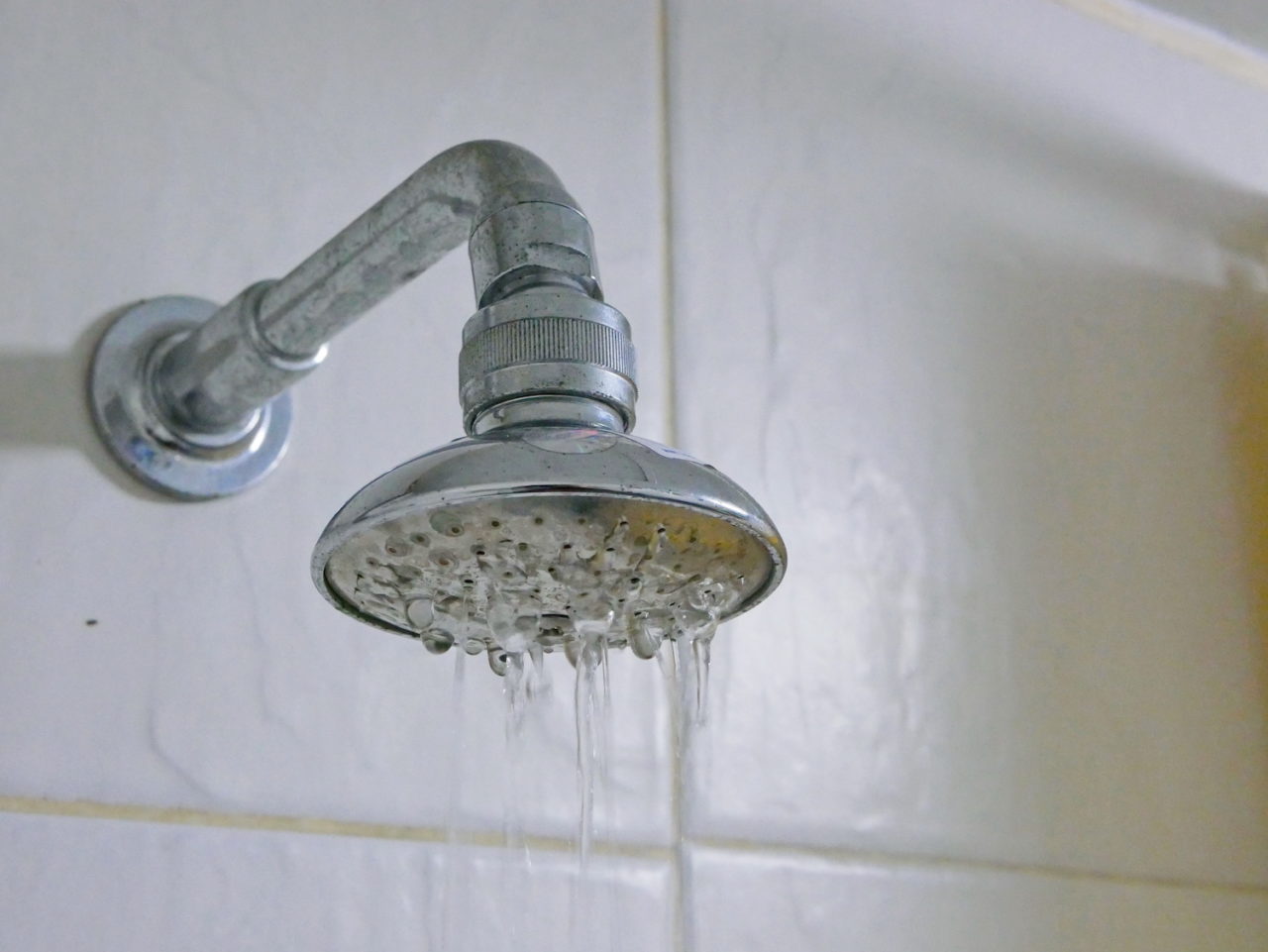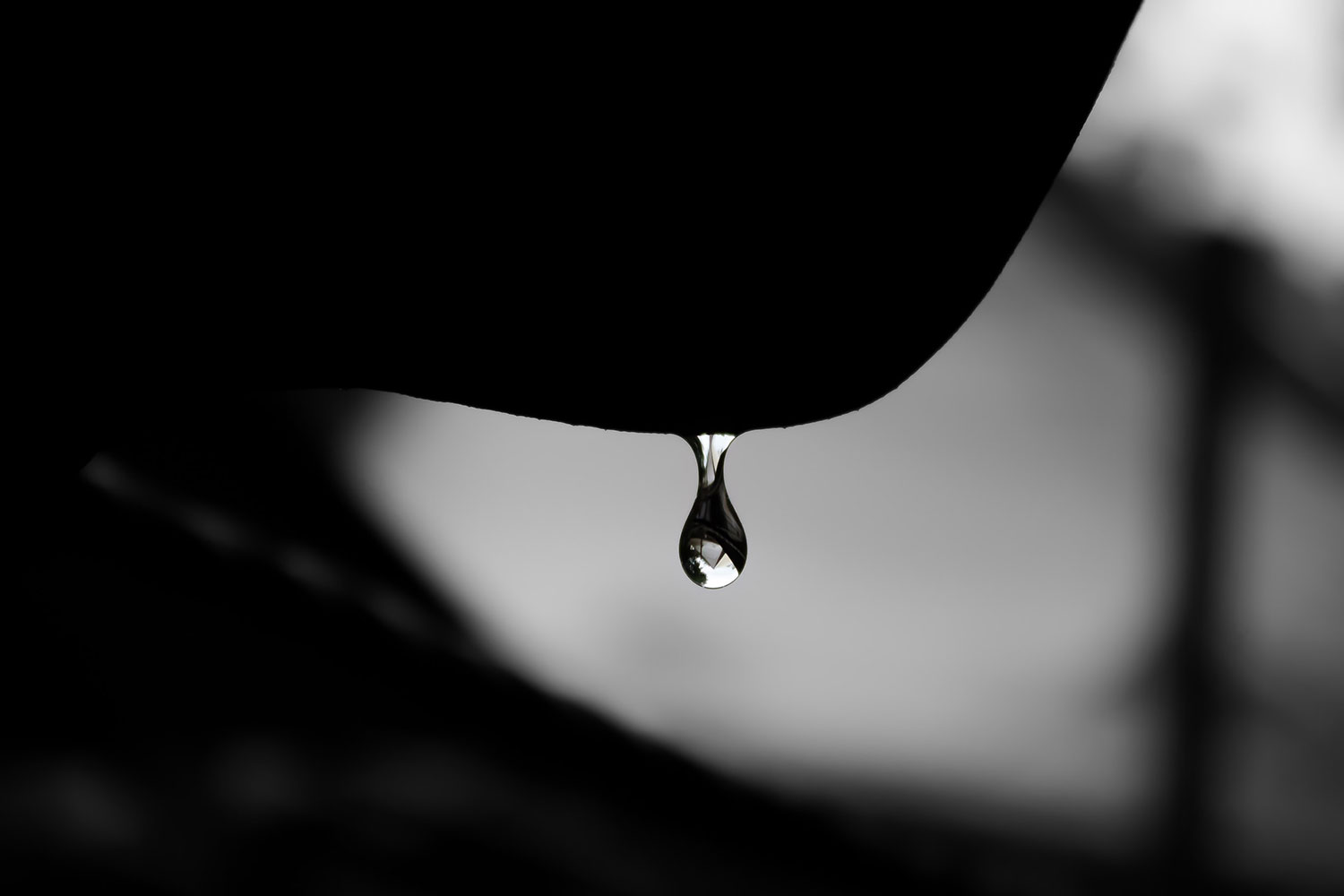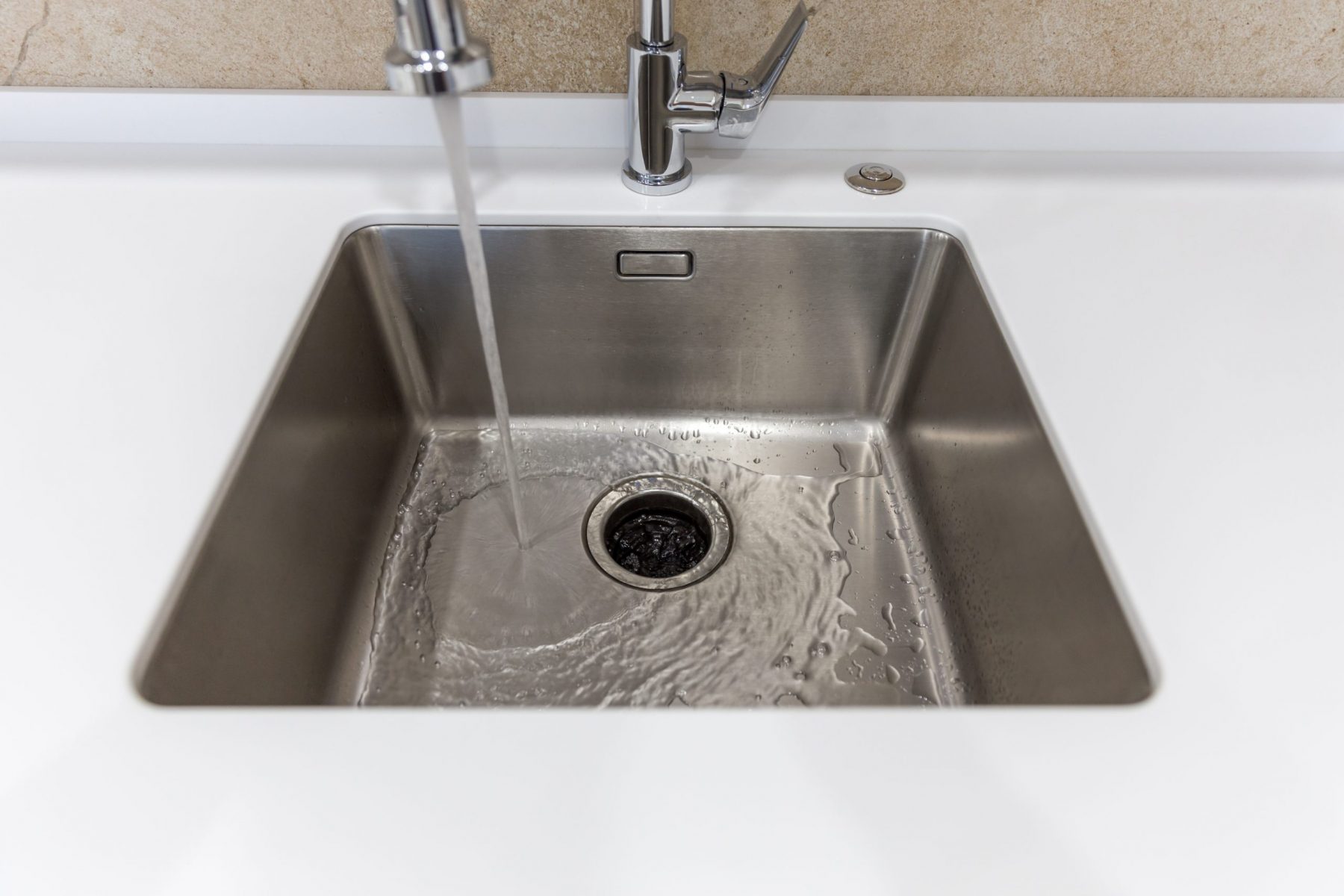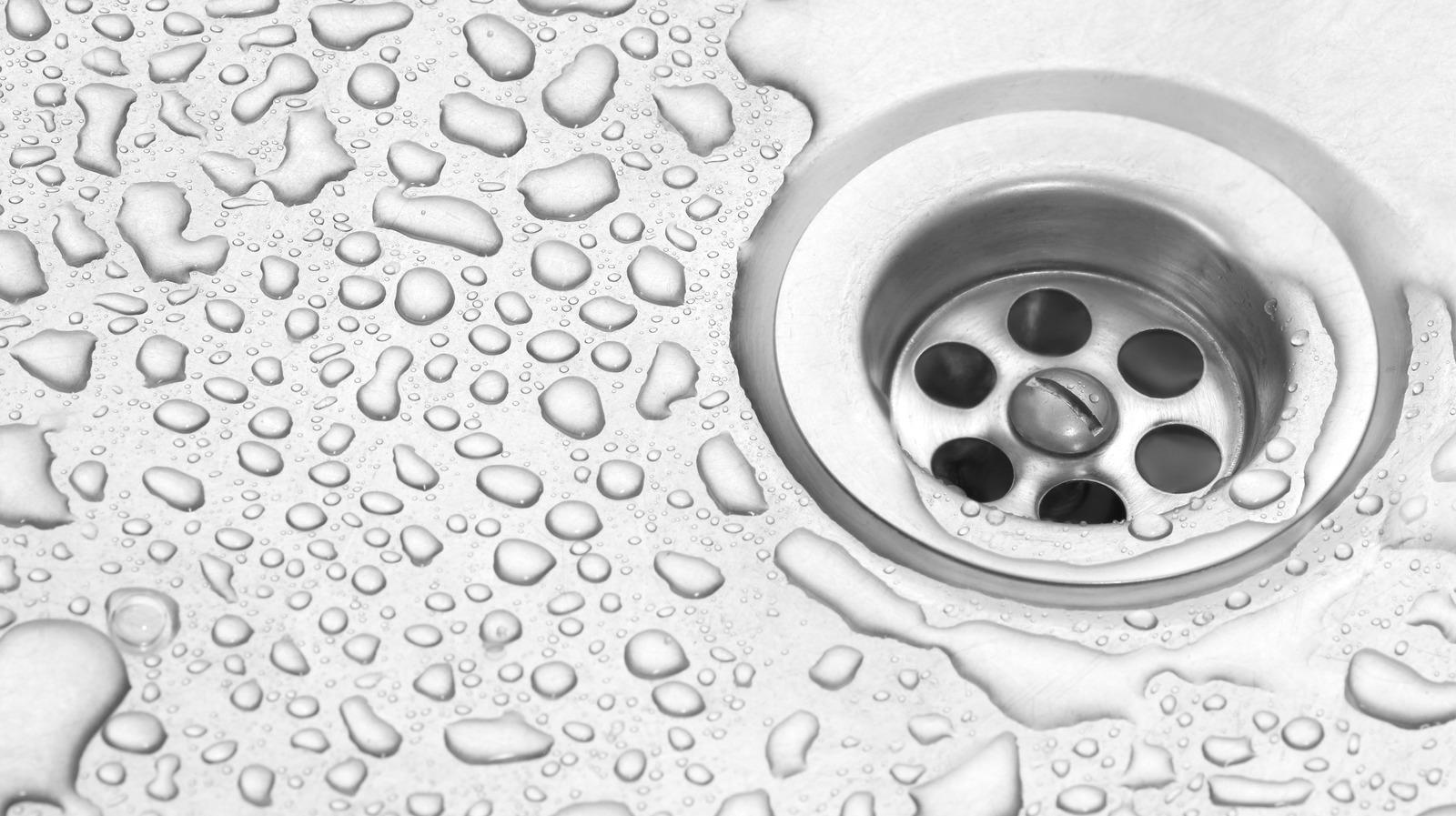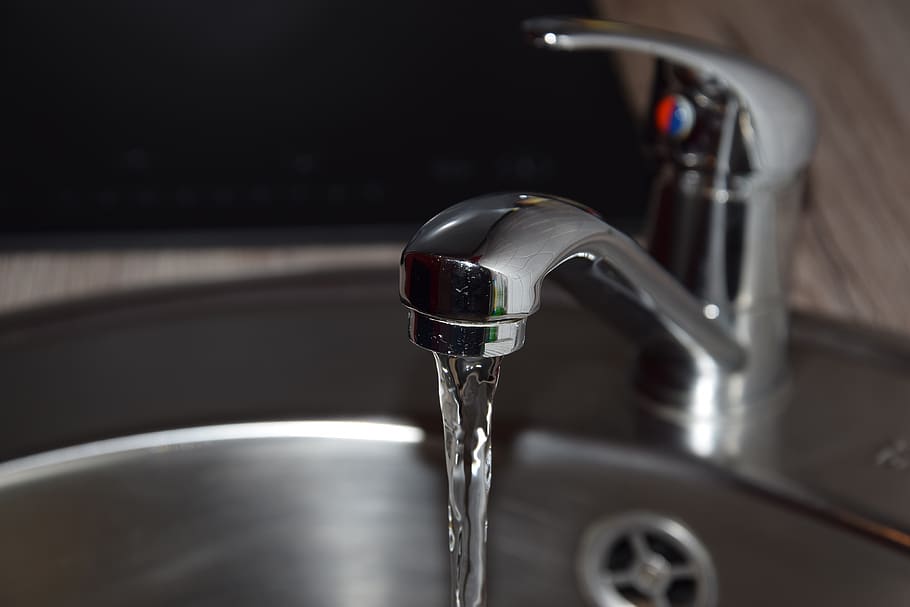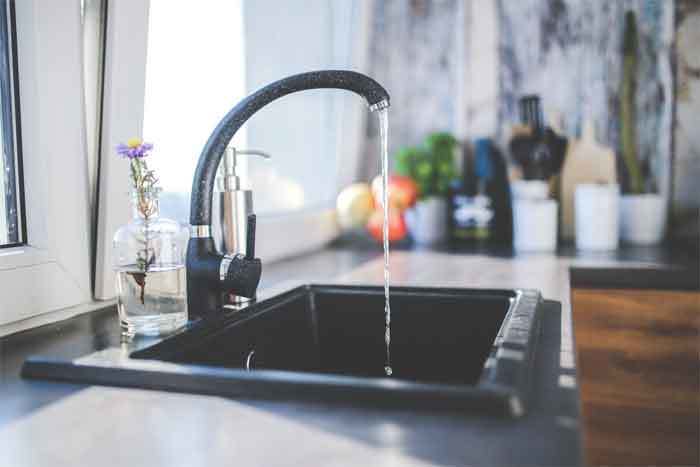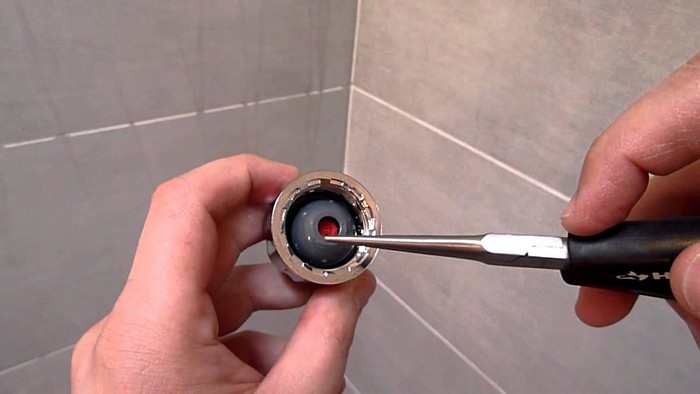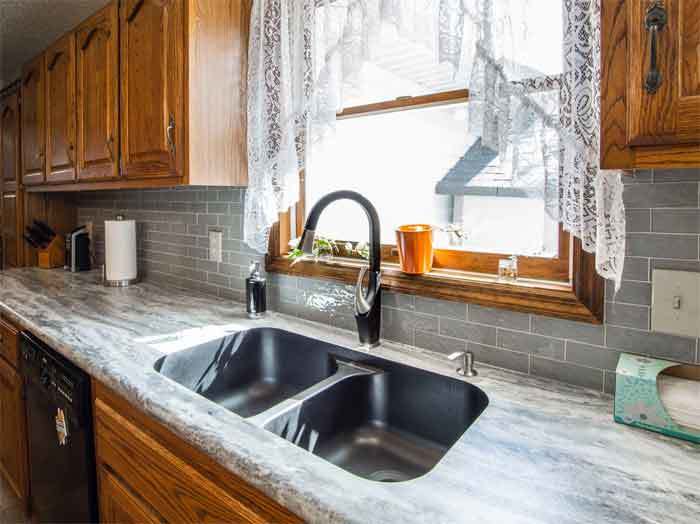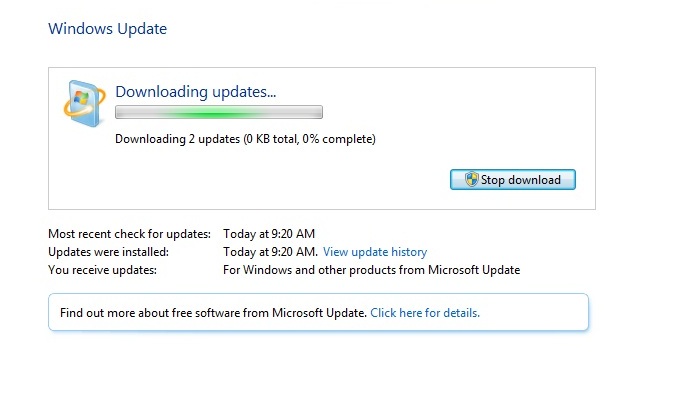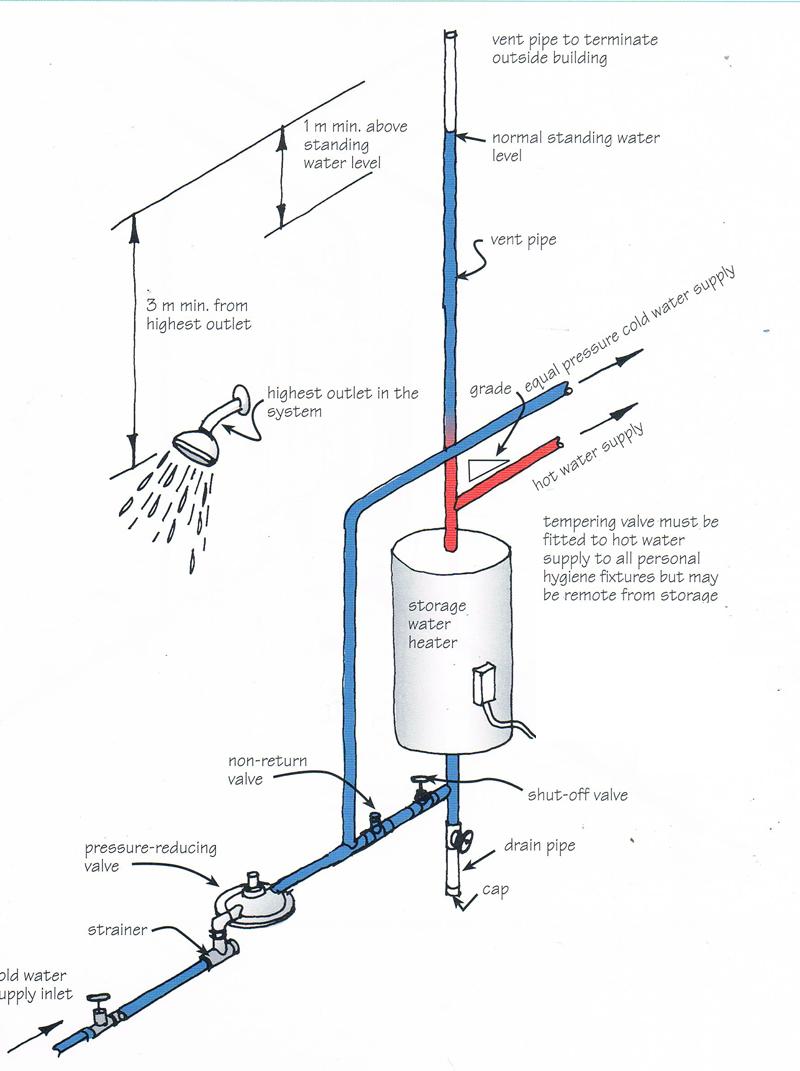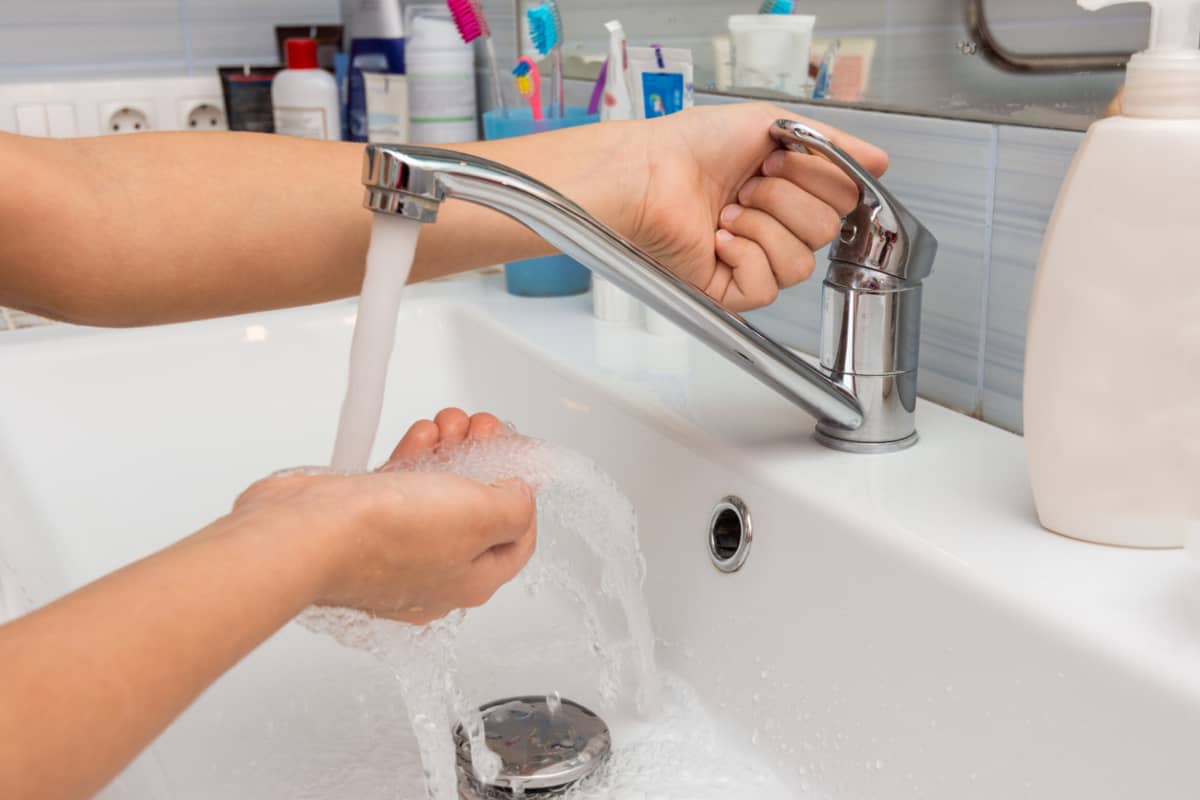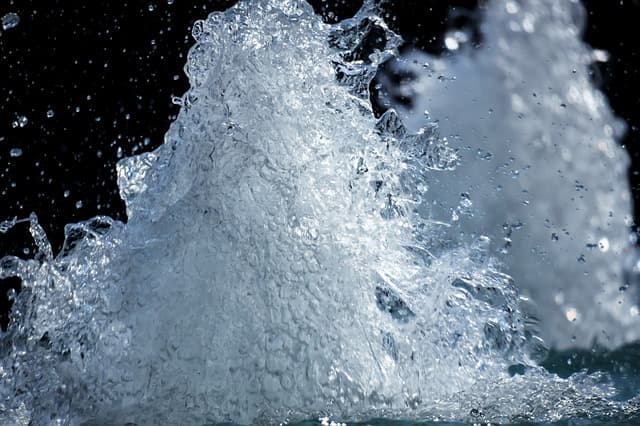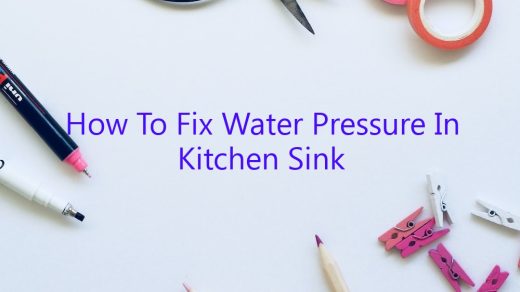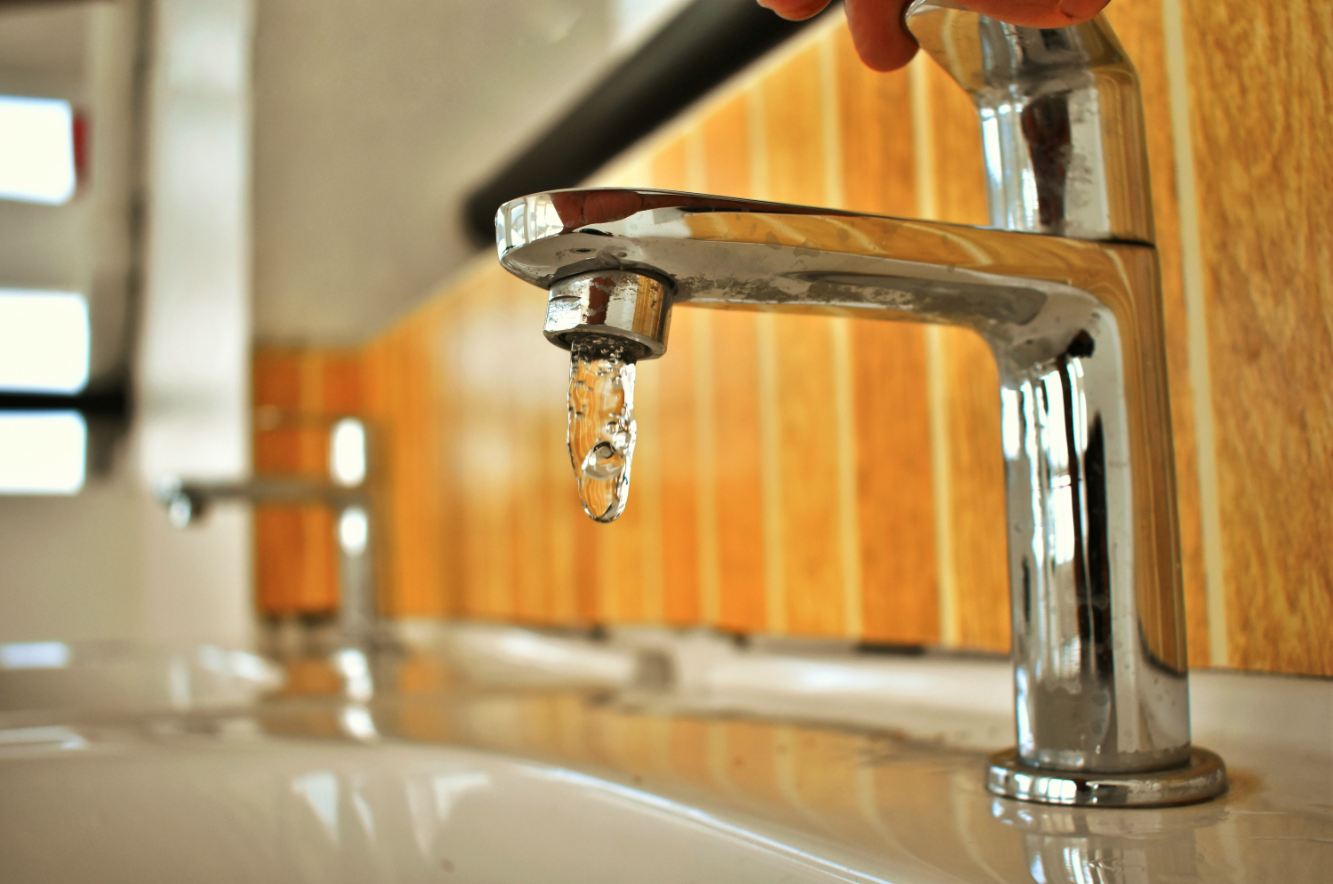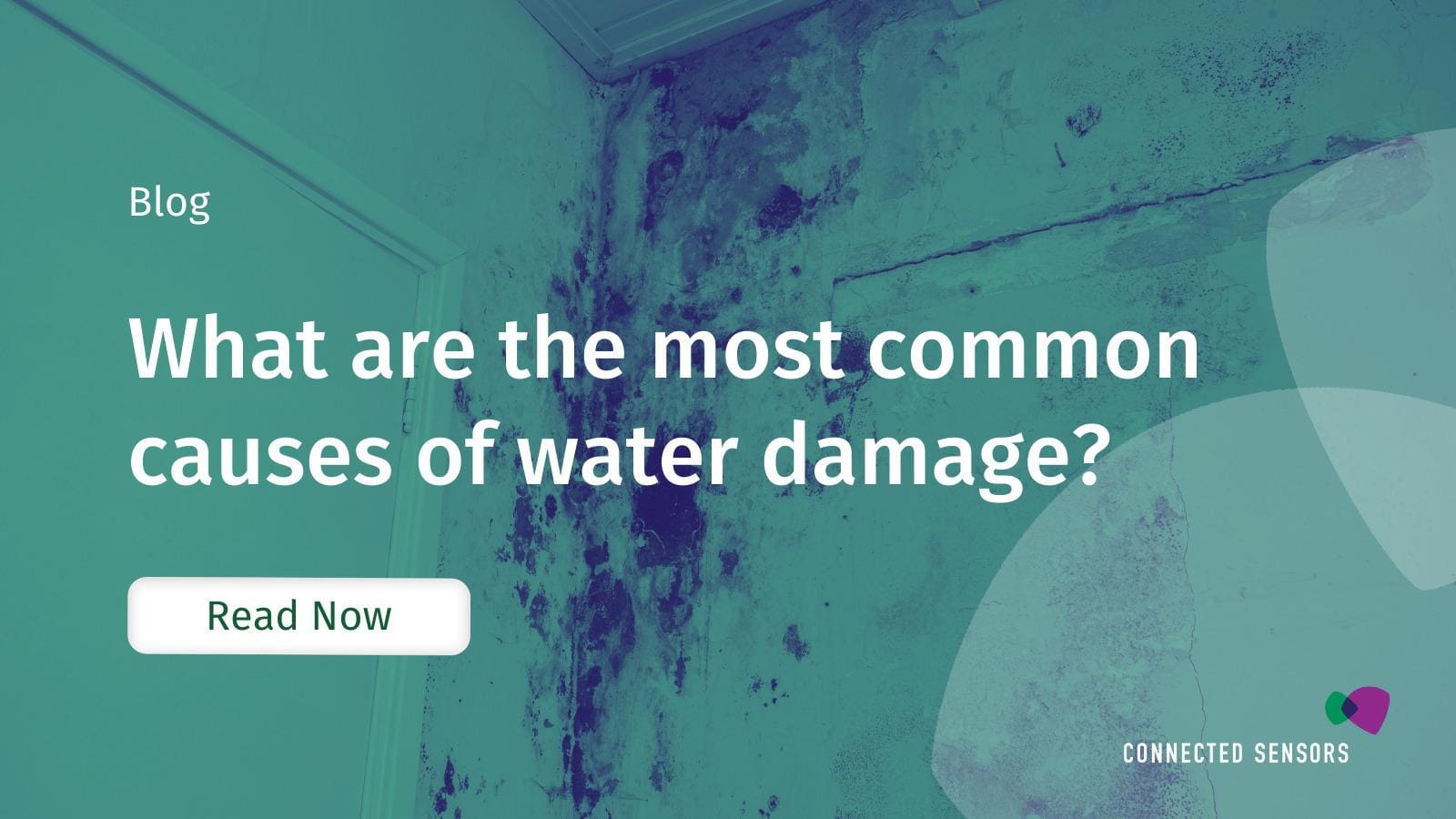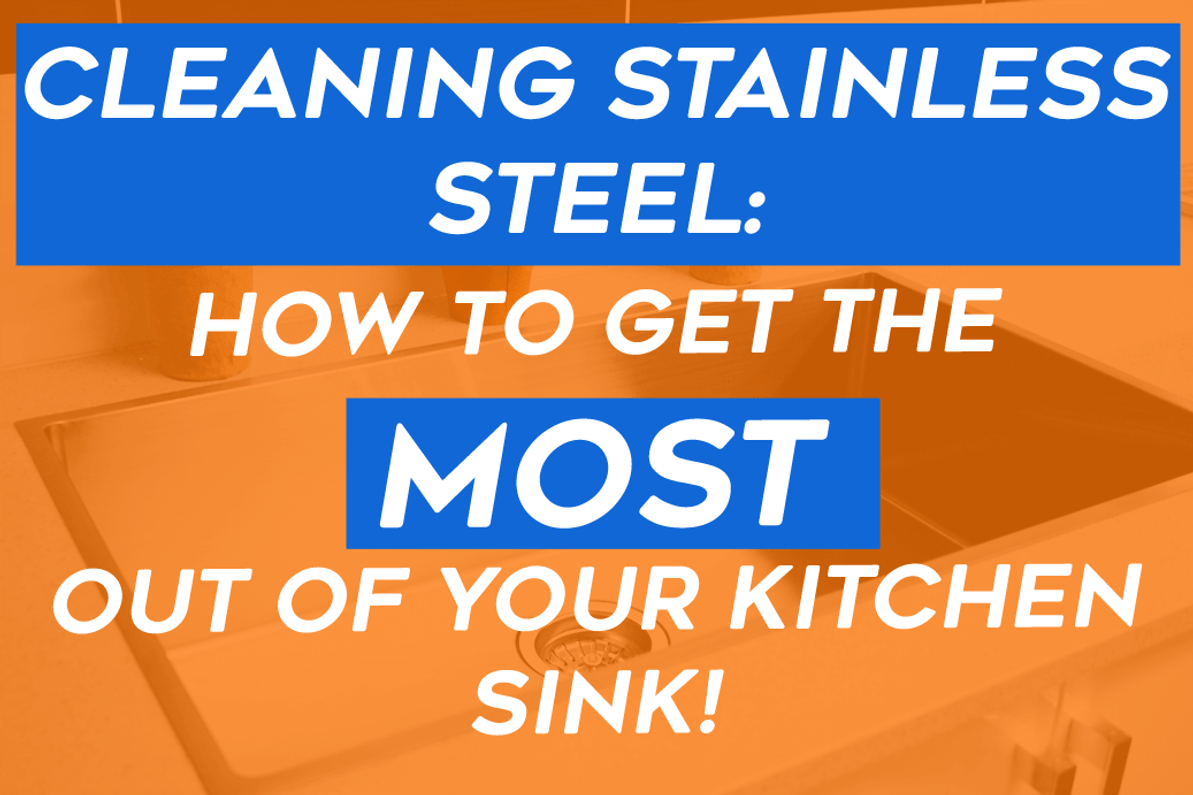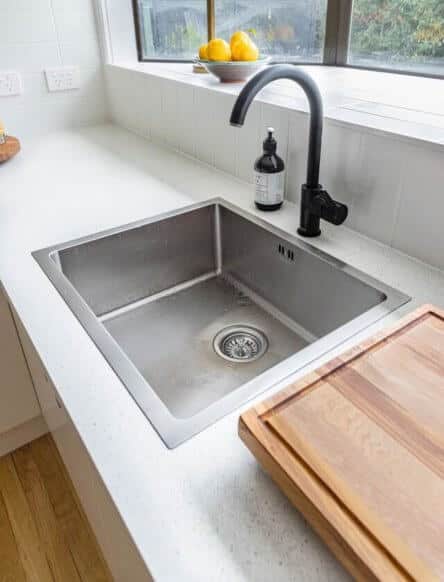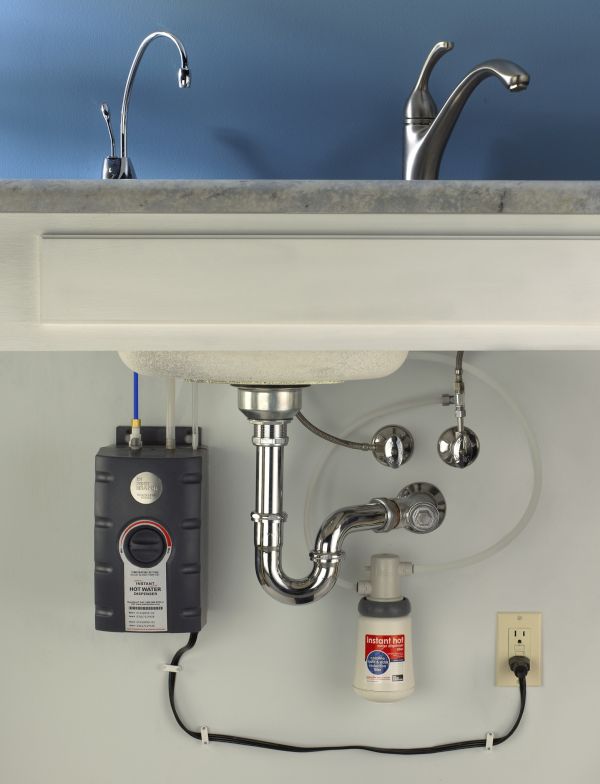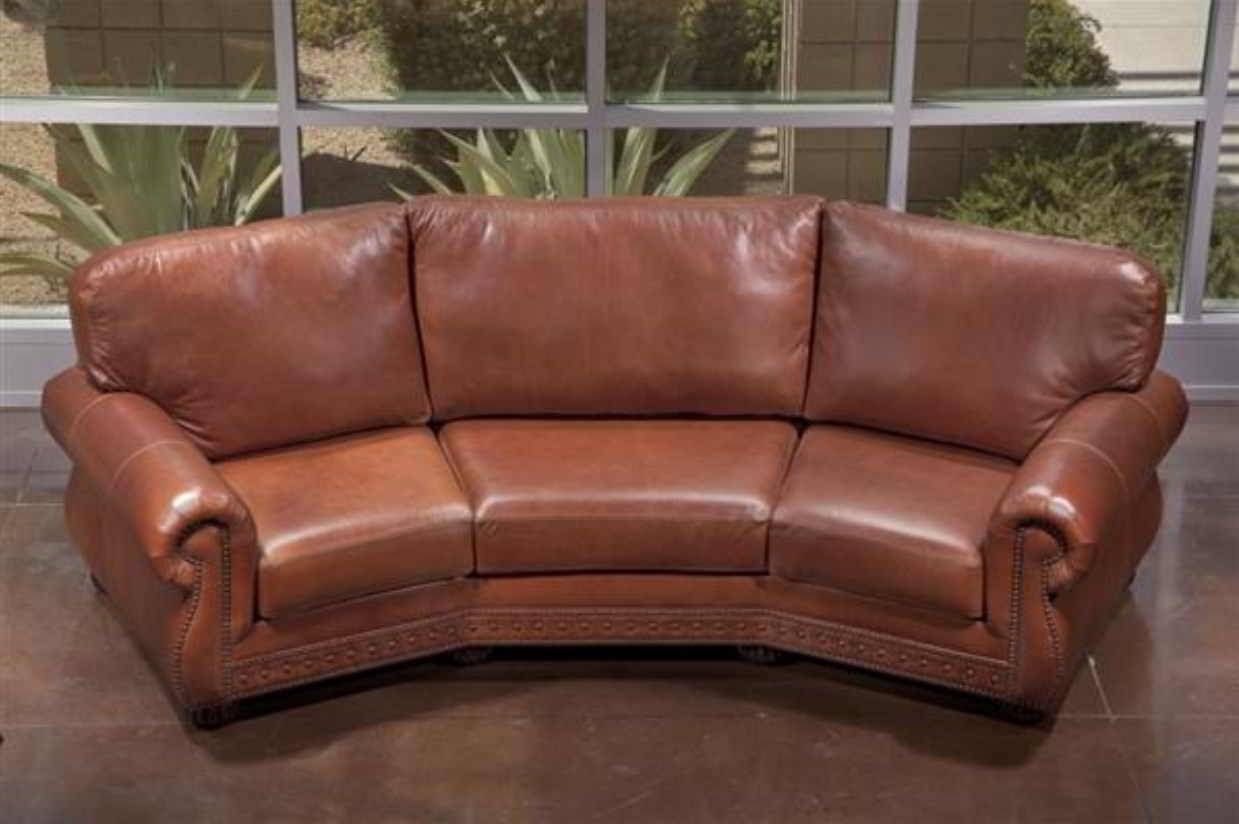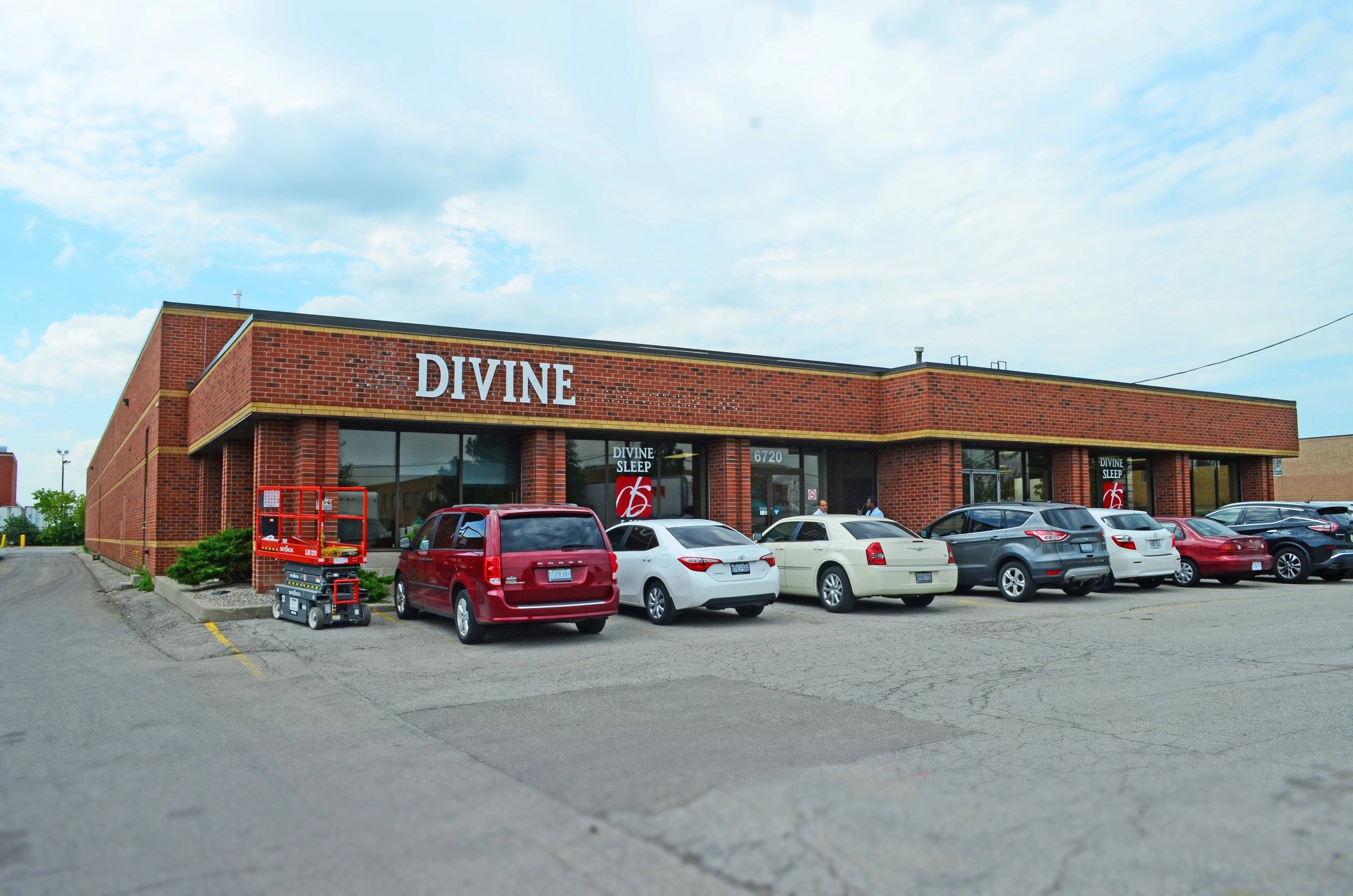If you've ever turned on your kitchen sink and waited eagerly for hot water to come out, only to be met with a slow, trickling stream, you know how frustrating it can be. Not only does it waste time, but it also wastes water and can make simple tasks like washing dishes or filling up a pot take much longer than they should. Fortunately, there are a few simple steps you can take to fix a slow kitchen sink hot water flow and get back to your daily routine. The first thing you should do is check the hot water valve under your sink. Make sure it is fully open and not partially closed, as this can restrict the flow of hot water. If the valve is fully open and you are still experiencing slow hot water, it may be time to check your water heater. Hot water valve, slow hot water flowHow to Fix a Slow Kitchen Sink Hot Water Flow
If your water heater is the culprit for your slow hot water flow, there are a few things you can do to troubleshoot the issue. First, check the temperature setting on your water heater. If it is set too low, it can take longer for the water to heat up. Adjust the temperature to a higher setting and see if that makes a difference. If the temperature setting is not the problem, it could be a buildup of sediment in your water heater. Over time, sediment can accumulate in the bottom of your water heater tank, which can reduce the amount of hot water that is able to flow through your pipes. To remedy this, you can drain your water heater to remove the sediment and improve hot water flow. Temperature setting, sediment buildupHow to Troubleshoot Slow Hot Water in Your Kitchen Sink
There are several reasons why your kitchen sink hot water may take forever to heat up, including a faulty water heater, old pipes, or a clog in your plumbing system. Here are five common reasons why your hot water may be taking too long to reach your sink: 1. Water heater issues: As mentioned before, your water heater may be the root cause of your slow hot water flow. If it is not functioning properly, it can take longer for the water to heat up and reach your sink. 2. Old pipes: If you have an older home, your hot water pipes may be corroded or damaged. This can restrict the flow of hot water and make it take longer to reach your sink. 3. Clogs: A clog in your plumbing system can also cause slow hot water flow. If there is a blockage in your pipes, the hot water may struggle to make its way to your sink. 4. Distance from water heater: The farther your kitchen sink is from your water heater, the longer it will take for the hot water to travel through the pipes. This is especially true if you have a tankless water heater, as they are typically installed close to the point of use. 5. Low water pressure: If you have low water pressure in your home, it can affect the flow of hot water to your sink. This can be caused by a variety of factors, such as a clogged aerator or a faulty pressure regulator. Water heater issues, old pipes, clogs, distance from water heater, low water pressure5 Reasons Why Your Kitchen Sink Hot Water Takes Forever to Heat Up
Now that you know some of the possible reasons for your slow kitchen sink hot water flow, it's time to look at how you can increase it. Here are a few tips to help you improve the hot water flow in your kitchen sink: 1. Insulate your hot water pipes: If your hot water pipes are not properly insulated, the hot water can lose heat as it travels through them. Insulating your pipes can help retain the heat and improve the flow of hot water to your sink. 2. Check your pressure regulator: As mentioned before, a faulty pressure regulator can cause low water pressure in your home. If you suspect this may be the case, you can check it and adjust it as needed to improve hot water flow. 3. Install a recirculation pump: A recirculation pump is a device that keeps hot water circulating through your pipes, so it is always readily available when you turn on the tap. This can significantly reduce the wait time for hot water in your kitchen sink. 4. Replace old pipes: If your hot water pipes are old and damaged, it may be time to replace them. New pipes can improve water flow and reduce the time it takes for hot water to reach your sink. Insulate hot water pipes, check pressure regulator, install recirculation pump, replace old pipesHow to Increase Hot Water Flow in Your Kitchen Sink
If you're still wondering why it takes so long for your kitchen sink to get hot water, the answer may be a combination of the factors mentioned above. It could be a combination of a faulty water heater, old pipes, and a clog in your plumbing system. By addressing these issues and implementing the tips mentioned, you should see a significant improvement in the hot water flow to your sink. It's also important to note that the time it takes for hot water to reach your sink can vary depending on the size of your water heater, the distance from the kitchen sink, and the overall water pressure in your home. By understanding the potential causes, you can take steps to improve the hot water flow in your kitchen sink. Faulty water heater, old pipes, clogs, distance from sink, low water pressureWhy Does It Take So Long for My Kitchen Sink to Get Hot Water?
If you have good hot water flow but low water pressure in your kitchen sink, there are a few things you can do to improve it: 1. Clean or replace the aerator: The aerator is the small screen at the end of your faucet that helps regulate water flow. Over time, it can become clogged with sediment or debris, which can affect the water pressure. Cleaning or replacing it can improve the pressure. 2. Check for leaks: If you have a leak in your plumbing system, it can cause low water pressure in your sink. Check for any visible leaks and have them repaired as soon as possible. 3. Install a water pressure booster: A water pressure booster is a device that can increase the water pressure in your home. It is typically installed near your water meter and can significantly improve water pressure in your kitchen sink and other areas of your home. Clean/replace aerator, check for leaks, install water pressure boosterHow to Improve Hot Water Pressure in Your Kitchen Sink
To recap, some of the most common causes of slow hot water in your kitchen sink include a faulty water heater, old pipes, clogs, and low water pressure. By addressing these issues and implementing the tips mentioned, you can improve the hot water flow in your sink and make your daily tasks a little easier. Remember to regularly maintain your water heater and pipes to prevent sediment buildup and other issues that can affect hot water flow. If you continue to experience slow hot water flow, it may be time to call a professional plumber to assess the problem and find a solution. Faulty water heater, old pipes, clogs, low water pressureThe Most Common Causes of Slow Hot Water in Your Kitchen Sink
While some of the tips mentioned above can help improve hot water flow in your kitchen sink, there are a few things you can do to fix a sink with consistently slow hot water: 1. Flush your water heater: Flushing your water heater can help remove sediment and debris that may be causing slow hot water flow. Follow the manufacturer's instructions or call a professional plumber to do this for you. 2. Replace your water heater: If your water heater is old or damaged, it may be time to replace it. A new water heater can significantly improve hot water flow and efficiency in your home. 3. Call a plumber: If you have tried all the troubleshooting tips and are still experiencing slow hot water in your kitchen sink, it may be time to call a plumber. They can assess the issue and provide a more permanent solution. Flush water heater, replace water heater, call plumberHow to Fix a Kitchen Sink with Slow Hot Water
If you're wondering why your kitchen sink hot water flow is so slow, the answer may be due to a combination of factors. It could be a faulty water heater, old pipes, clogs, distance from the sink, or low water pressure. By addressing these issues and implementing the tips mentioned, you can improve the hot water flow in your kitchen sink and make your daily tasks more efficient. Remember to regularly maintain your water heater and pipes to prevent sediment buildup and other issues. And if you continue to experience slow hot water flow, don't hesitate to call a professional plumber for help. Faulty water heater, old pipes, clogs, distance from sink, low water pressureWhy Is My Kitchen Sink Hot Water Flow So Slow?
Whether you're in a hurry to wash dishes or just tired of waiting for hot water to reach your kitchen sink, there are a few things you can do to speed up the process: 1. Install a point-of-use water heater: A point-of-use water heater is a small, compact unit that can be installed under your sink. It heats up water on demand, so you don't have to wait for it to travel through your pipes. 2. Insulate your hot water pipes: As mentioned before, insulating your hot water pipes can help retain heat and improve hot water flow to your sink. 3. Keep your water heater maintained: Regular maintenance of your water heater can prevent issues that can affect hot water flow. Schedule a tune-up at least once a year to keep it running efficiently. Install point-of-use water heater, insulate hot water pipes, maintain water heaterHow to Speed Up Hot Water in Your Kitchen Sink
Why Does It Take Forever to Get Hot Water from Your Kitchen Sink?

Have you ever found yourself standing at your kitchen sink, waiting and waiting for the hot water to finally kick in? You're not alone. For many homeowners, the struggle of getting hot water from the kitchen sink is all too familiar. But why does this happen? And is there a solution? Let's dive into the reasons behind this common household inconvenience.
The Distance Factor
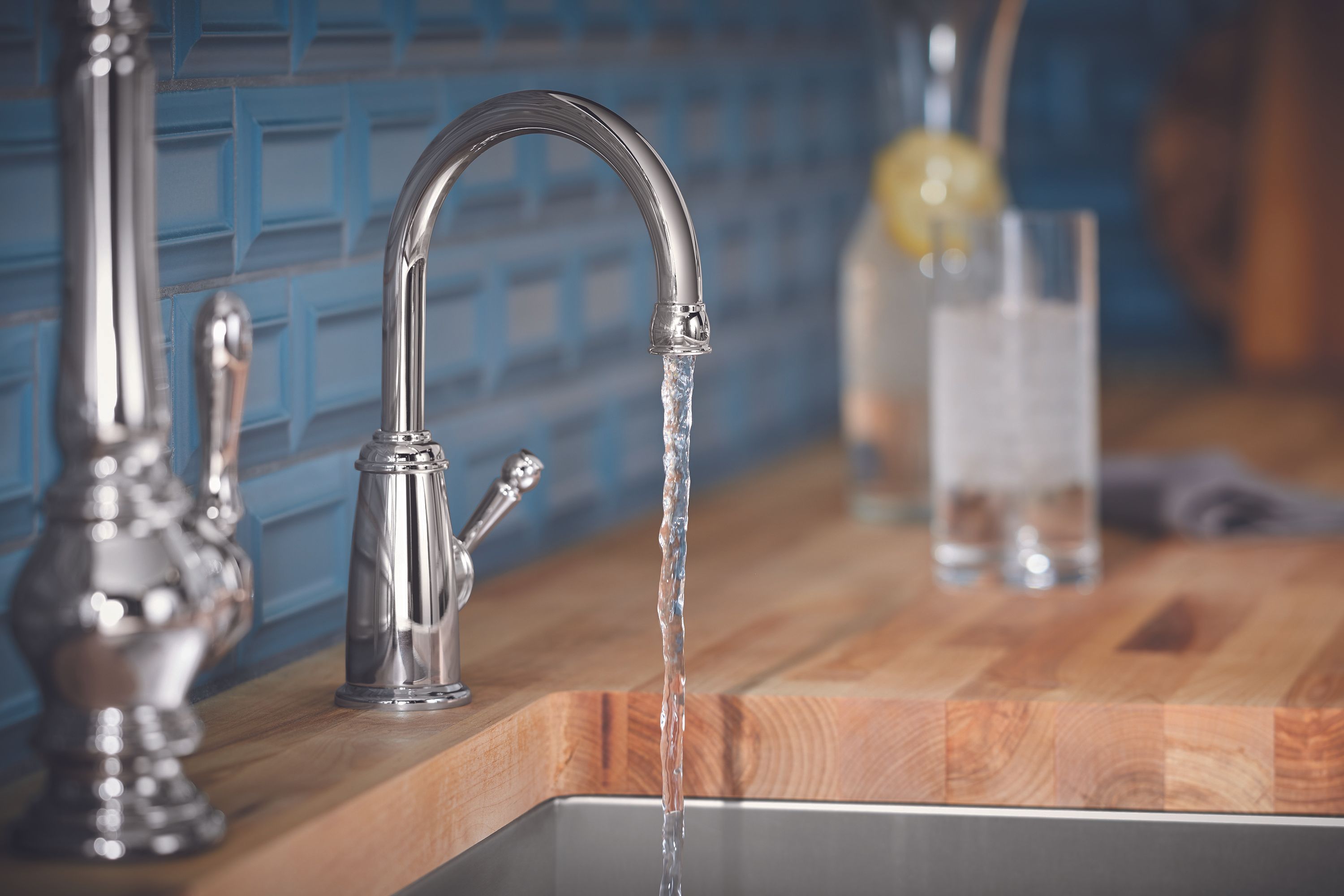
One of the main reasons why it takes so long to get hot water from your kitchen sink is the distance between your sink and the water heater. In most homes, the water heater is located in the basement or a utility closet, which can be quite far from the kitchen. This means that the hot water has to travel a longer distance through the pipes, resulting in a longer wait time.
Additionally, if your home has multiple floors, the hot water has to travel vertically as well, adding to the delay. This is especially true for homes with older plumbing systems that may have smaller pipes, making the journey for hot water even longer.
The Insulation Factor
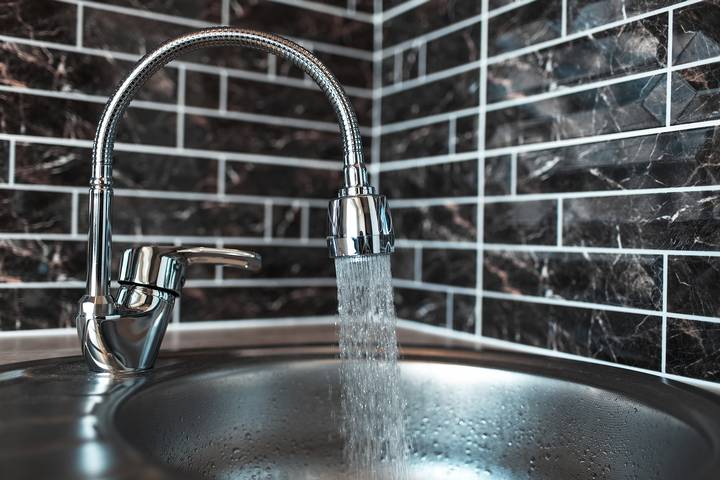
Another factor that can contribute to the delay in getting hot water from your kitchen sink is the lack of proper insulation in your hot water pipes. Hot water loses heat as it travels through uninsulated pipes, causing it to cool down by the time it reaches your sink. This means that you have to wait for the hot water to be replenished from the water heater, resulting in a longer wait time.
Insulating your hot water pipes can help reduce the amount of heat lost during travel, making the hot water reach your sink faster and cutting down on the wait time.
The Demand Factor

Lastly, the amount of hot water demand in your home can also affect the time it takes for hot water to reach your kitchen sink. If there are multiple people using hot water at the same time, such as someone taking a shower or doing laundry, the hot water supply can be depleted faster, resulting in a longer wait for hot water at the kitchen sink.
If this is a recurring issue in your home, consider installing a hot water recirculation system. This system keeps hot water constantly circulating through your pipes, meaning you won't have to wait for it to travel from the water heater to your sink.
In Conclusion
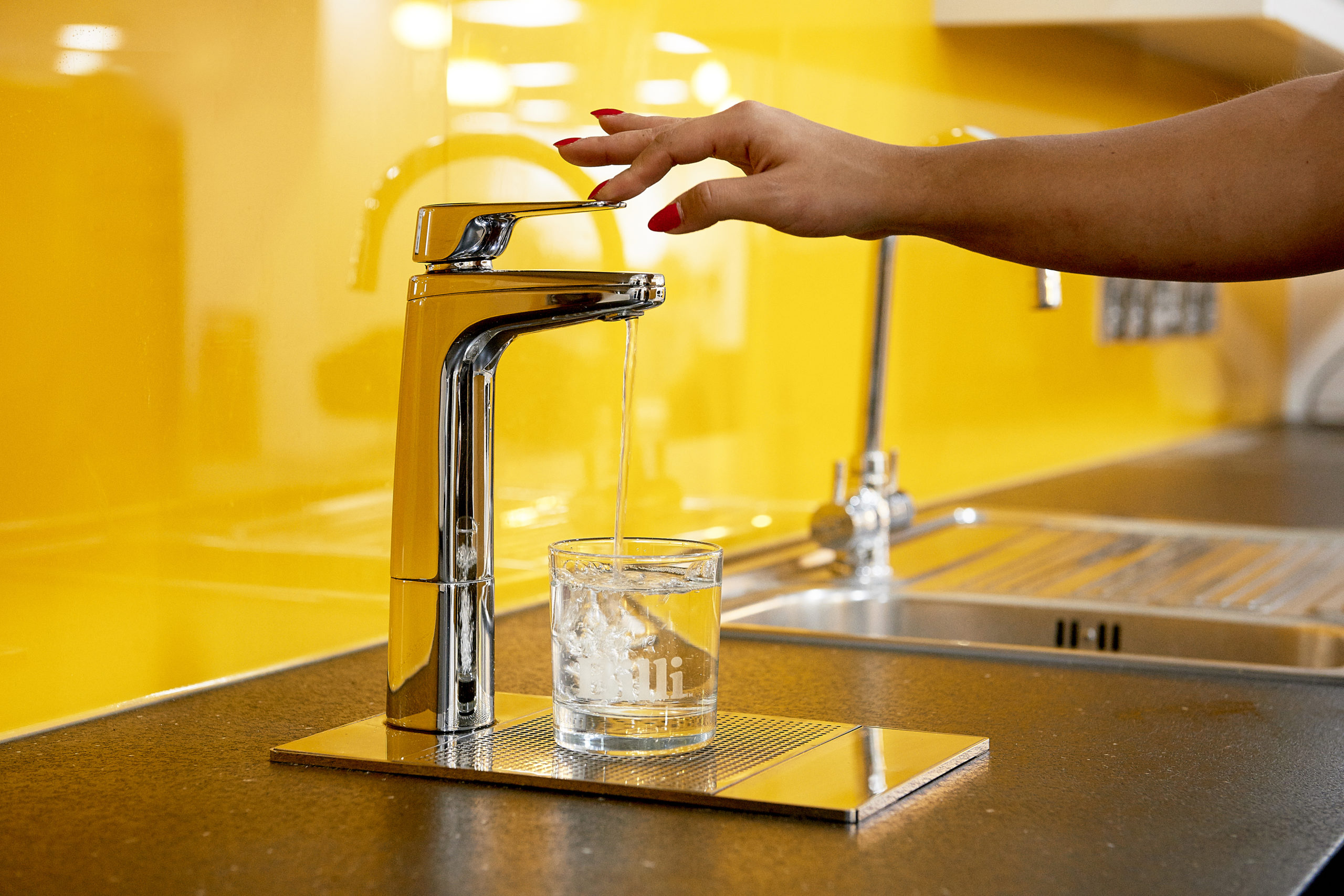
Having to wait for hot water from your kitchen sink can be frustrating, but understanding the factors that contribute to this issue can help you find a solution. Consider the distance between your sink and water heater, the insulation of your hot water pipes, and the demand for hot water in your home. By addressing these factors, you can reduce the wait time and enjoy hot water from your kitchen sink in no time.








